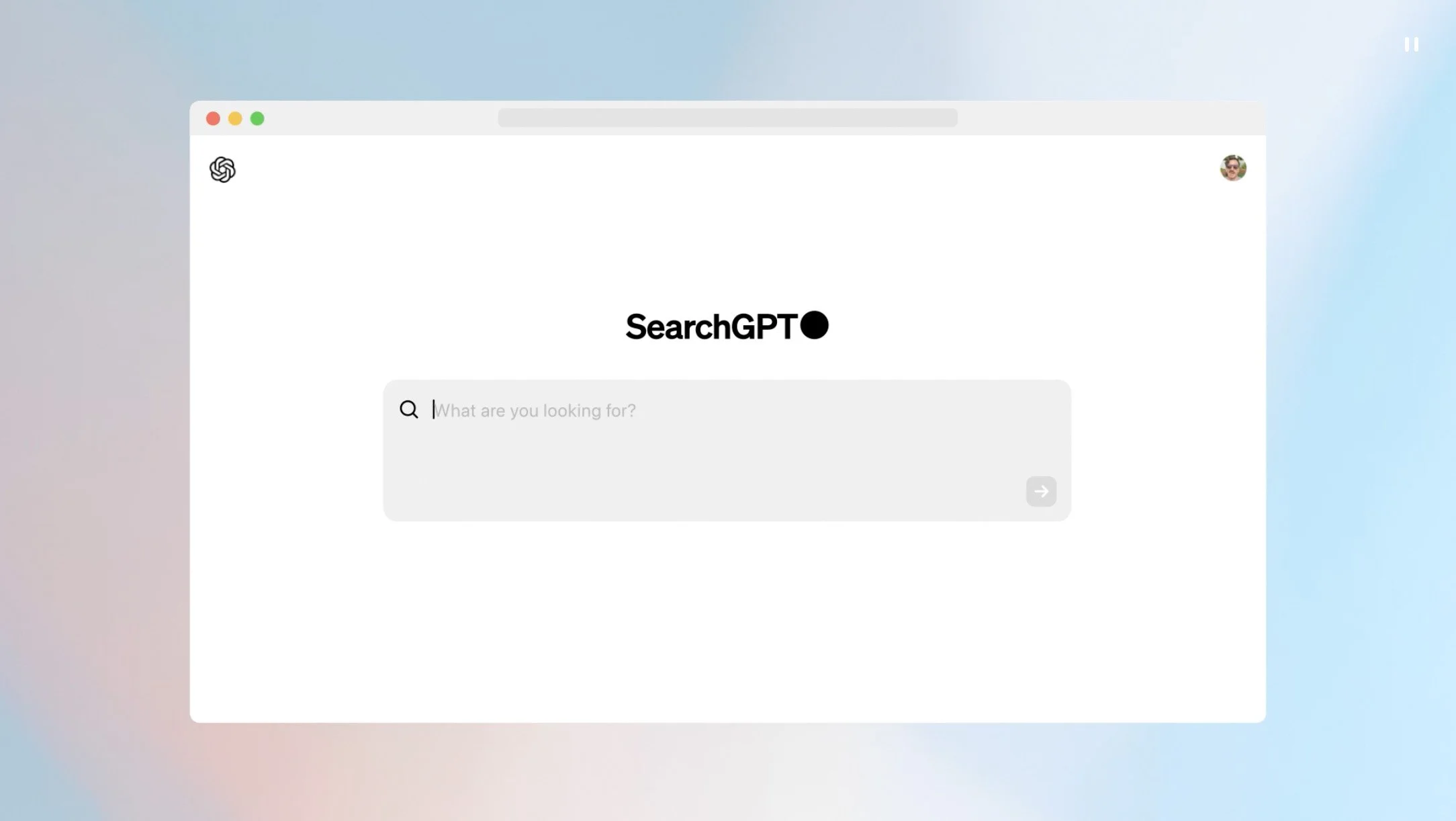SearchGPT: OpenAI's Bold Step into the AI-Powered Search Engine Arena
Image Source: OpenAI
OpenAI has unveiled its latest innovation, SearchGPT, a new AI-powered search engine. This prototype, currently limited to 10,000 testers, represents OpenAI's ambitious entry into the highly competitive search engine market, long dominated by Google. Designed to provide fast, timely answers with clear and relevant sources, SearchGPT aims to revolutionize the way users interact with search engines. This bold move sets the stage for a new era in search technology, where AI-driven insights could reshape user experiences.
Competing with Giants: The AI Search Engine Race
The launch of SearchGPT comes at a time of increasing competition in the AI search engine space. Google, the undisputed leader in search, has recently integrated AI capabilities into its platform, signaling a shift towards more intelligent search solutions. Startups like Perplexity, backed by notable figures such as Jeff Bezos, have also entered the fray, branding themselves as "answer engines" that leverage AI to summarize vast amounts of information. SearchGPT's debut adds another formidable player to this evolving landscape.
The Controversy Surrounding AI Search Engines
AI-powered search engines have not been without controversy. Perplexity faced backlash last month for summarizing content from Forbes and Wired without proper attribution or backlinks, violating ethical norms and copyright guidelines. Additionally, the use of AI to scrape data from websites without permission has raised significant legal and moral questions. These incidents highlight the challenges and responsibilities that come with deploying AI in search technology, as the industry grapples with maintaining transparency and respect for intellectual property.
OpenAI's Collaborative Approach
In light of these controversies, OpenAI appears to be adopting a more collaborative approach with SearchGPT. The company has emphasized partnerships with various news organizations to ensure proper licensing and attribution of content. Prominent publishers like The Atlantic and News Corp have voiced their support, highlighting the mutually beneficial nature of these agreements. By prominently citing and linking to original sources, SearchGPT aims to foster a more transparent and ethical search experience.
Empowering Publishers: Control and Customization
One of the key features of SearchGPT is the control it offers to publishers over their content. Publishers can decide how their material is presented within the search engine and have the option to opt out of having their content used for training OpenAI's models. This flexibility ensures that content creators retain a significant degree of control over their intellectual property while benefiting from increased visibility in search results. Such measures aim to build trust and collaboration between AI developers and content creators.
Enhancing User Experience: A New Search Paradigm
SearchGPT's user interface is designed to provide a more engaging and informative search experience. Instead of traditional lists of links, SearchGPT categorizes results with concise descriptions and visuals. For instance, a search for music festivals yields brief overviews of events along with links for further details. This approach aims to make information more accessible and visually appealing, offering users a more intuitive way to find what they are looking for.
Addressing Accuracy and Reliability
Despite its innovative features, SearchGPT has already faced criticism for presenting inaccurate information in its results. This highlights the ongoing challenge of ensuring accuracy and reliability in AI-generated content. OpenAI must continue refining its algorithms and data sources to minimize errors and enhance the credibility of SearchGPT. Building user trust will be crucial for the long-term success of this new search engine, especially in an environment where misinformation can have significant consequences.
Source: Yahoo! Finance

